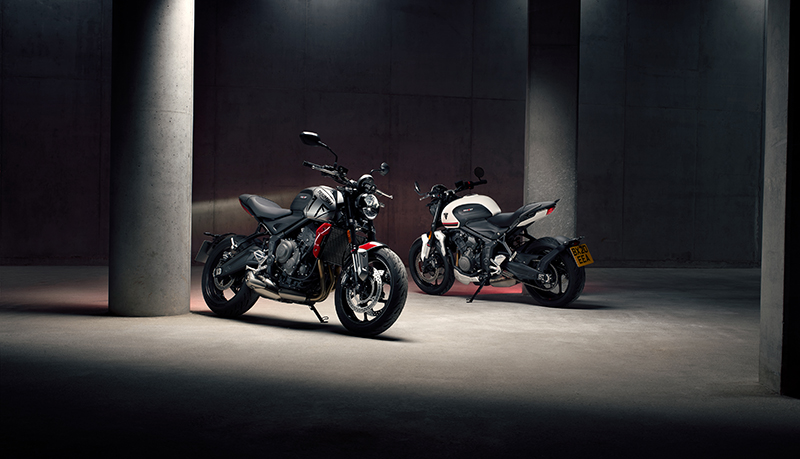
The 2021 Triumph Trident 660 has finally been unveiled, and Triumph hopes that its triple-cylinder-powered roadster has what it takes to shake up the twin-cylinder dominated middleweight class. Aggressively priced at $7,995 and equipped with ABS, switchable traction control and selectable ride modes, the British marque is bringing the fight to its competition.
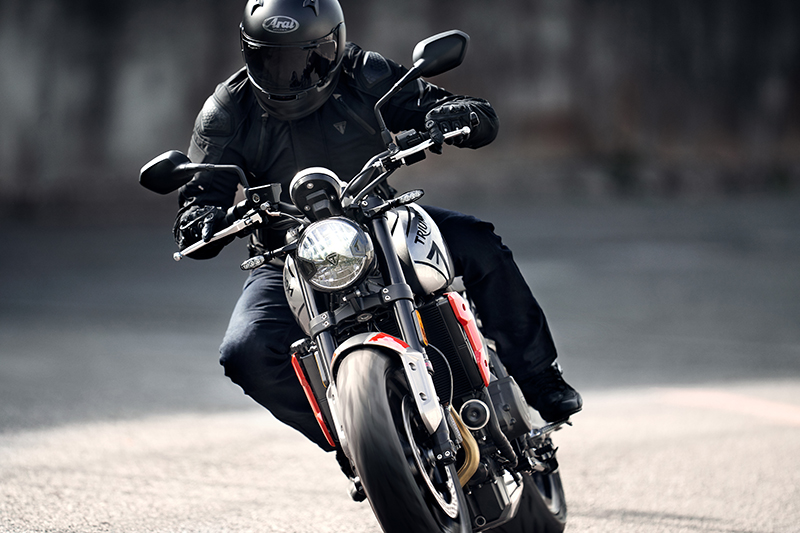
Pitted against the likes of the Suzuki SV650, Yamaha MT-07 / XSR 700, Kawasaki Z650 and Honda CBR650R, the Trident 660 has its work cut out for it. However, the Triumph offers plenty of up-spec componentry and features for a few hundred dollars above most of its competition — and significantly less than the Honda.
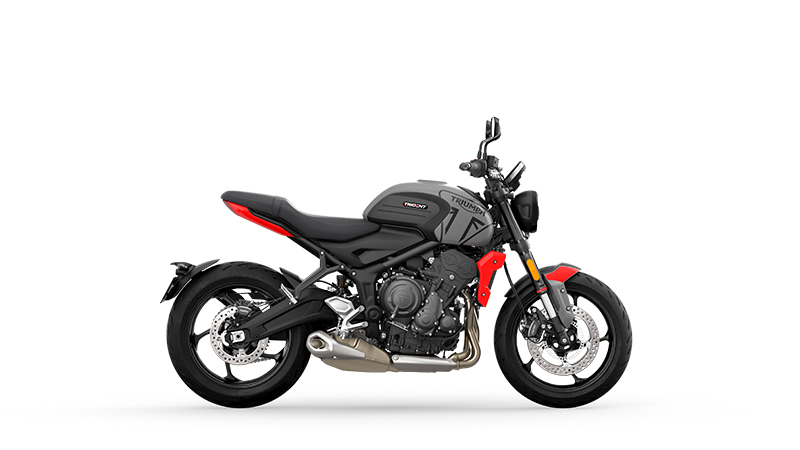
The Trident moniker is an essential piece of history for Triumph, as it was the brand’s first triple-cylinder powered machine, launched in 1968. A full-factory racing Trident known as “Slipper Sam” also claimed five consecutive Isle of Mann Production TT wins from 1972 to 1975. In the early 1990s, the Trident name was revisited with the Trident 750 and 900 roadsters.
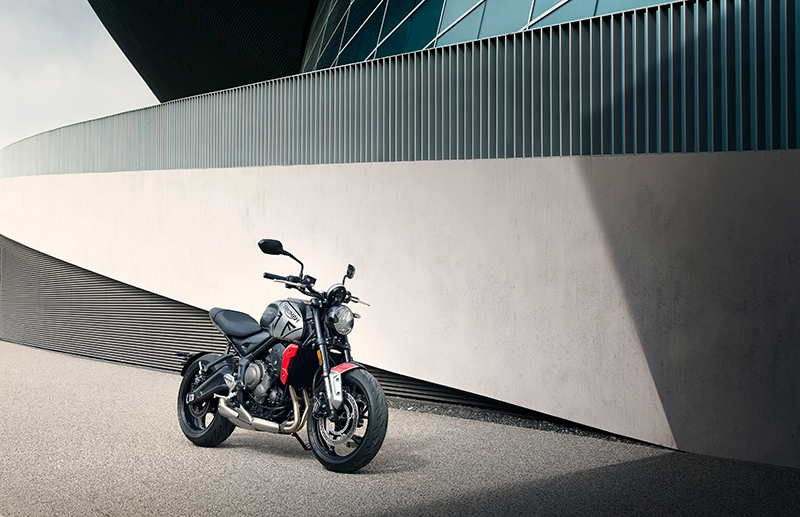
Triumph began teasing the 2021 Trident 660 earlier this year when it revealed a design prototype at the London Design Museum, which displayed the new roadster’s rough concept. Shortly after, Triumph broke tradition and officially released images of the new Trident during its final testing stages. Details have been scarce until now.
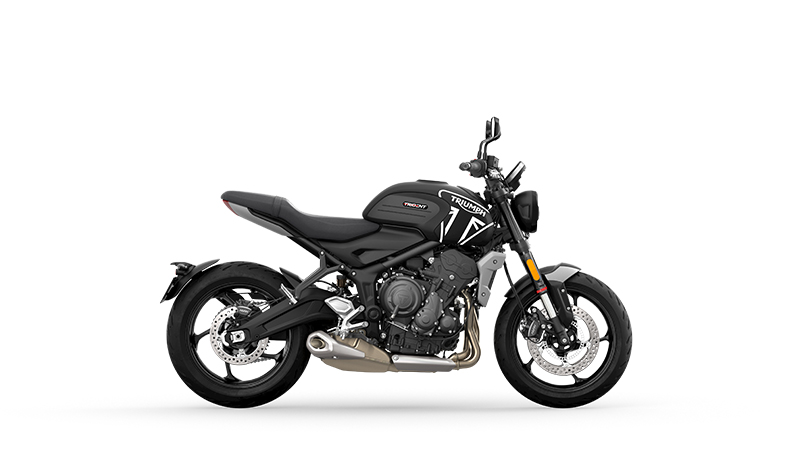
Beginning with its Euro 5 compliant powerplant, the 2021 Trident is powered by a liquid-cooled, DOHC, 660cc inline-triple cylinder engine making a claimed 79.9 horsepower at 10,250 rpm and 47 lb-ft of torque at 6,250 rpm. Notably, the Trident’s engine is said to provide 90-percent of its peak torque at an impressively low 3,600 rpm. Triumph engineers stated that low end and midrange power is prioritized in its design and it will also offer top-end power that middleweight parallel and V-twin engines are not known for. A sleek underslung 3-into-1-exhaust system is almost surely going to produce the triple-cylinder howl that Triumph fans adore.
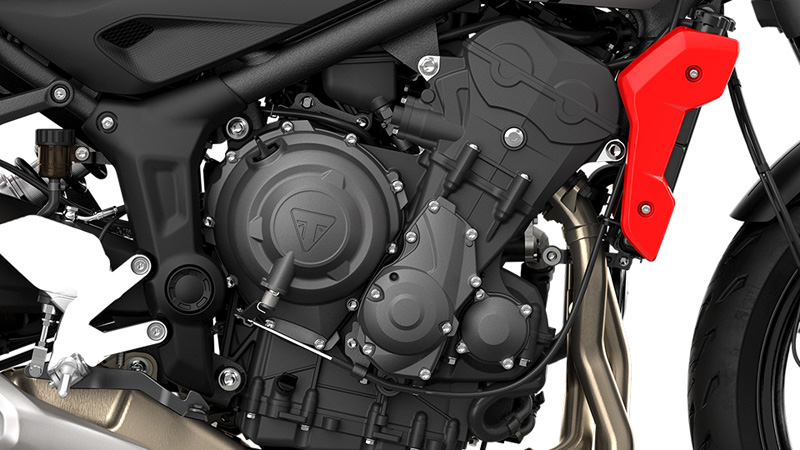
If the engine cases and bolt patterns look familiar, that’s because the engine is an evolution of what was used in the 2013-2016 Triumph Street Triple 675. This refined engine features 67 new components and significant design changes. Engineers narrowed the 74mm bore and lengthened the 51.1mm stroke, resulting in decreased displacement and paving the way for a new crankshaft, piston design and cam profiles. Additionally, an all-new intake and exhaust system was needed for the Trident’s application.
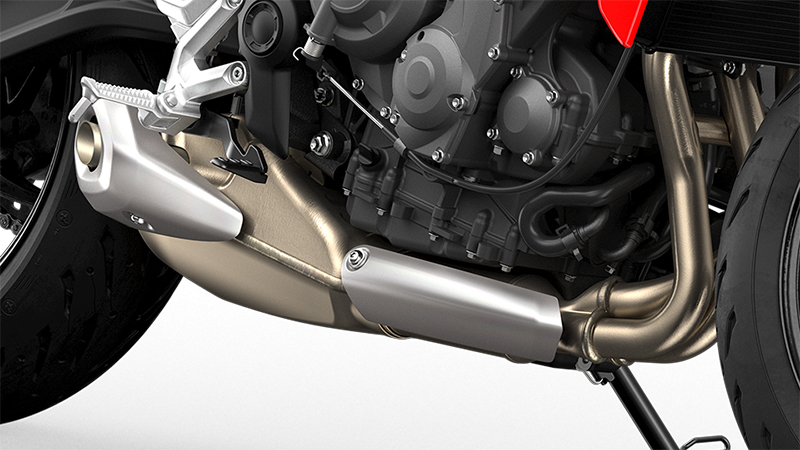
The 6-speed gearbox is updated with new internal gear and final drive ratios and a redesigned slip-assist clutch that is said to offer a light clutch pull for urban riding. The lever itself is non-adjustable. The Trident can be fitted with an optional factory up/down quickshifter, which isn’t offered by its direct competition.
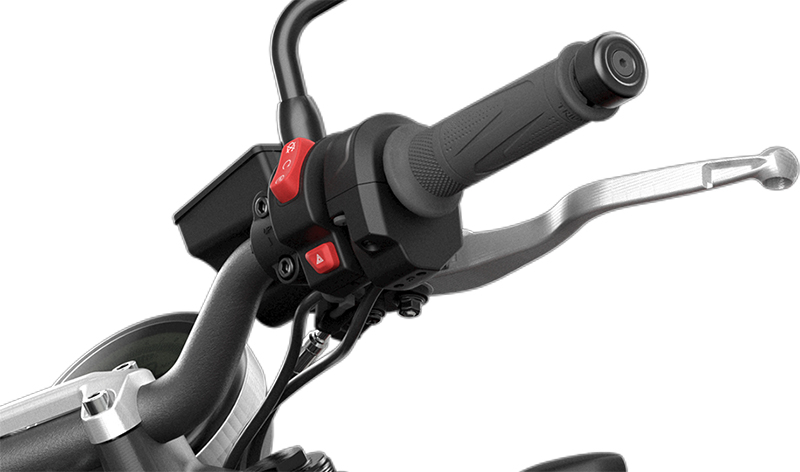
Thanks to the modern throttle-by-wire, the Trident 660 boasts two preset ride modes, Road and Rain, which alter throttle response and rider aid intervention. Traction control can be disabled, while ABS cannot, per Euro 5 standards. To help keep the MSRP down, the Trident does not use an IMU, but Triumph staff says that its rider aids are tested at full-lean, suggesting that its system may not be as heavy-handed with intervention.
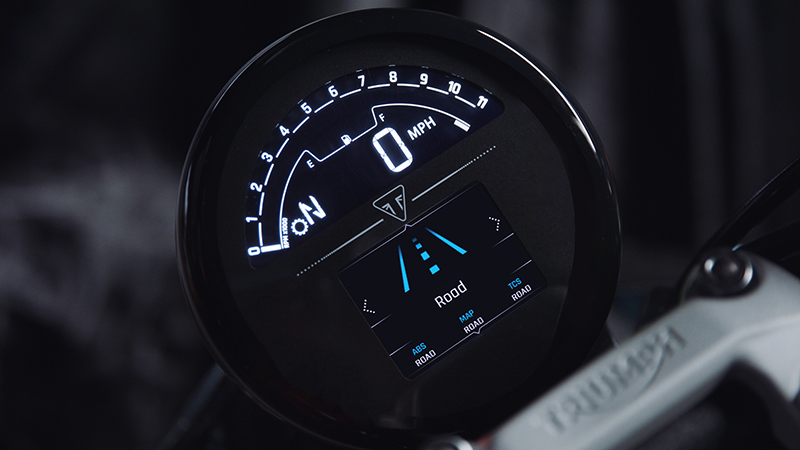
A round TFT/LCD instrument panel offers an uncluttered design. The optional Bluetooth module provides modern amenities such as turn-by-turn navigation, GoPro control, phone, and music control, all accessed from the switchgear.
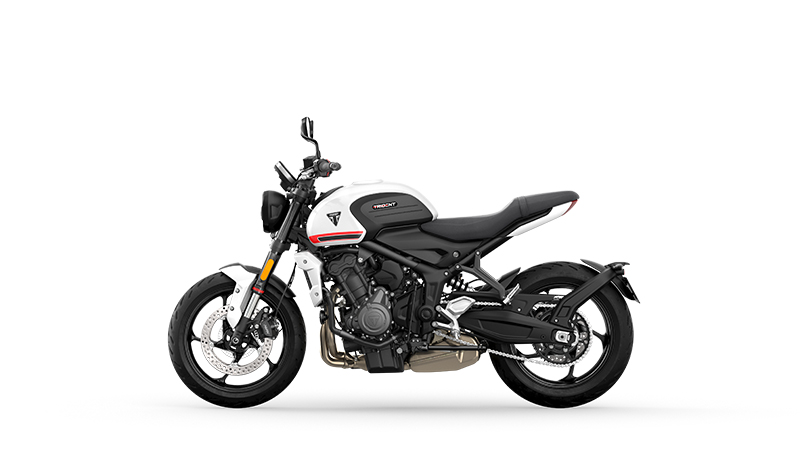
Stylistically, the Trident strikes a careful balance between its heritage and modern lineups. Triumph is flexing its fit-and-finish prowess with numerous embossed components and LED lighting all around. Four liveries are available: Crystal White, Matt Jet Black & Matt Silver Ice, Sapphire Black and Silver Ice & Diablo Red.
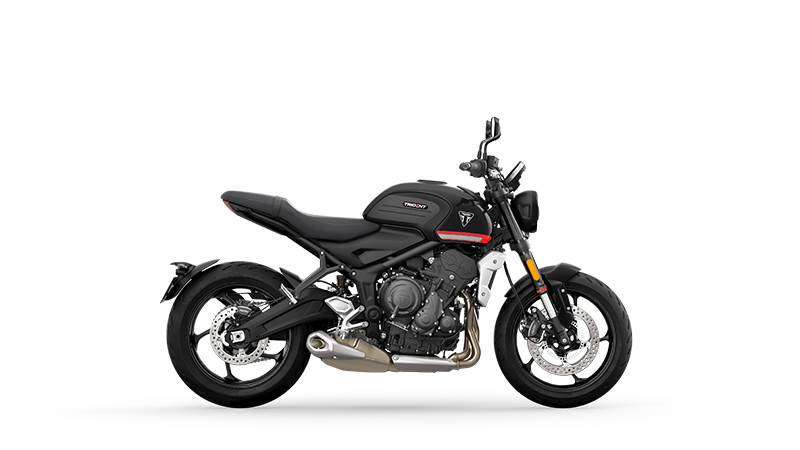
An all-new tubular steel chassis and cast aluminum swingarm have typical roadster figures, with a 55.2-inch wheelbase and 24.6-degree rake. The standout number is the accommodating 31.7-inch seat height, which should appeal to a broad range of rider sizes. The 3.7-gallon fuel tank features knee cutouts, which are a classic styling cue from the Triumph playbook but also help keep the overall package slim. The claimed weight is listed as 417 pounds, which is noticeably heavier than the MT-07 and Z650.
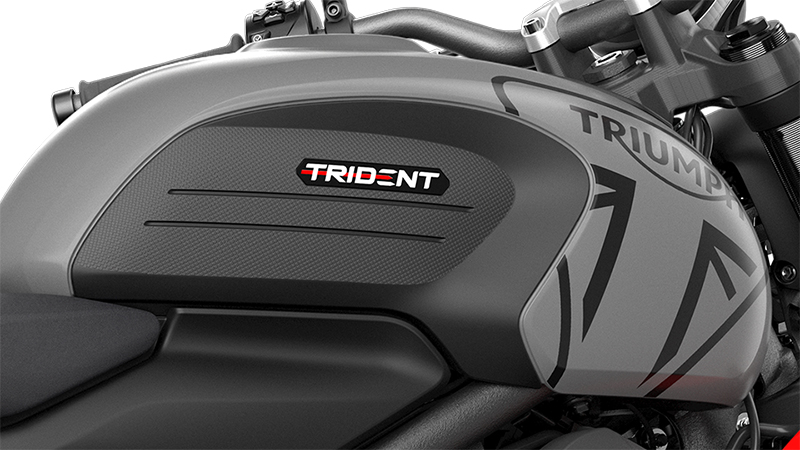
Suspension duties are handled by a non-adjustable 41mm inverted Showa fork and Showa shock featuring spring-preload adjustment only. Compared to the traditional fork found on most bikes in this class, the inverted fork is a step up, although costs were still saved with the lack of adjustment.
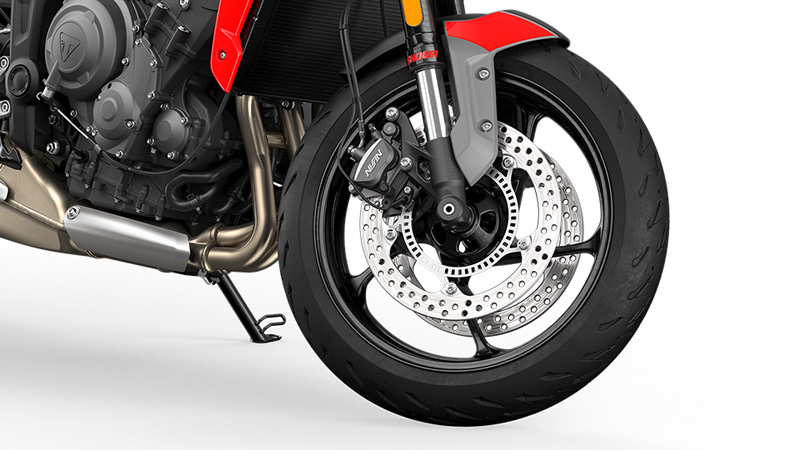
Class-appropriate 2-piston floating Nissin calipers work with 310mm floating rotors, and a single-piston Nissin caliper grabs onto a 255mm disc.
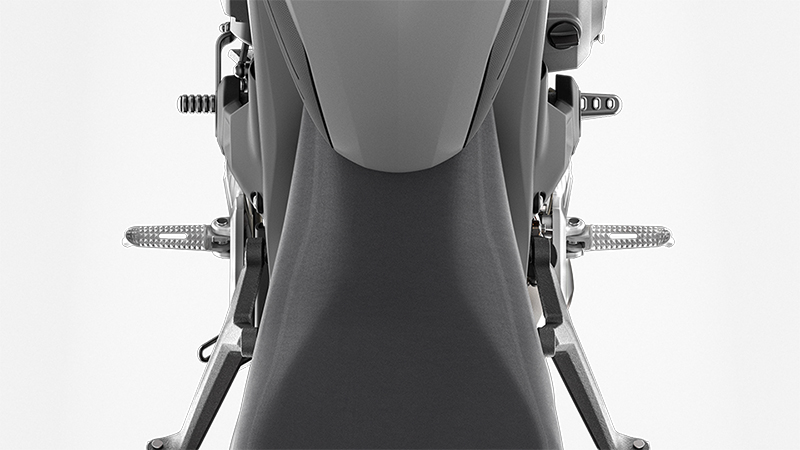
High-quality Michelin Road 5 120/70 and 180/55 rubber is mounted on cast aluminum 17-inch wheels. Michelin Road 5 tires are a significant improvement when compared to the OEM rubber available in this class.
We can’t wait to throw a leg over the 2021 Triumph Trident, but until we do, feast your eyes on the images below.
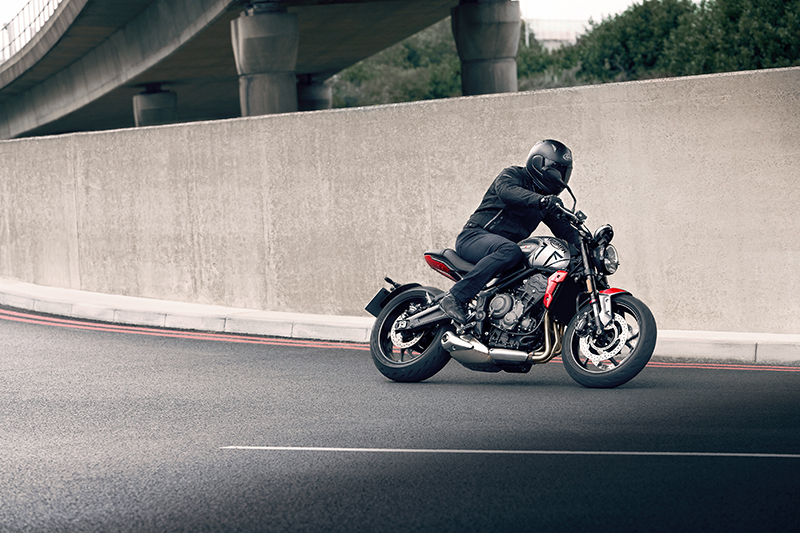
2021 Triumph Trident 660 Specs
Base Price: $7,995
Website: triumphmotorcycles.com
Engine Type: Liquid-cooled, transverse in-line triple, DOHC w/ 4 valves per cyl.
Displacement: 660cc
Bore x Stroke: 74.0 x 51.1mm
Transmission: 6-speed, cable-actuated assist-and-slipper wet clutch
Final Drive: O-ring chain
Wheelbase: 55.2 in.
Rake/Trail: 24.6 degrees/4.2 in.
Seat Height: 32.5 in.
Claimed Wet Weight: 417 lbs.
Fuel Capacity: 3.7 gals., last 1.0 gal. warning light on

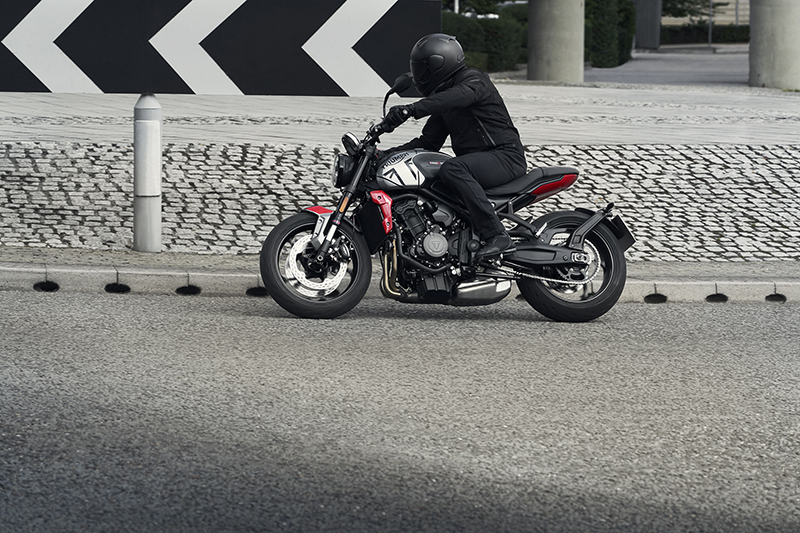
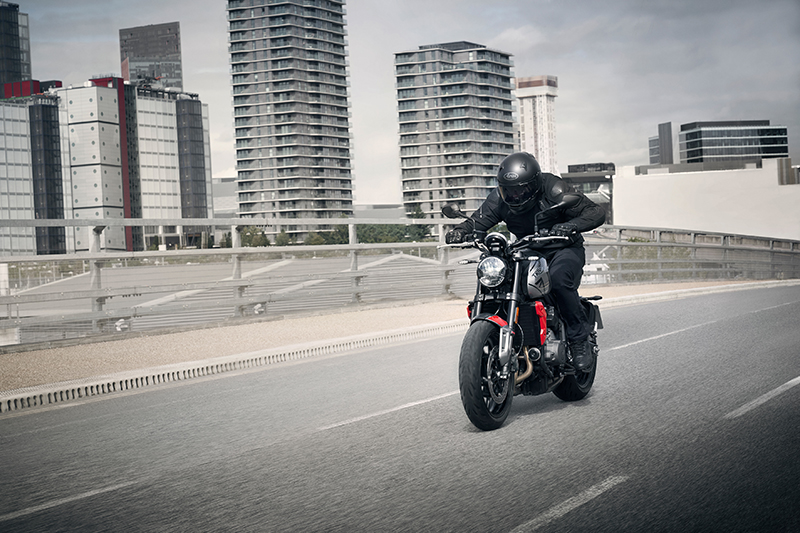
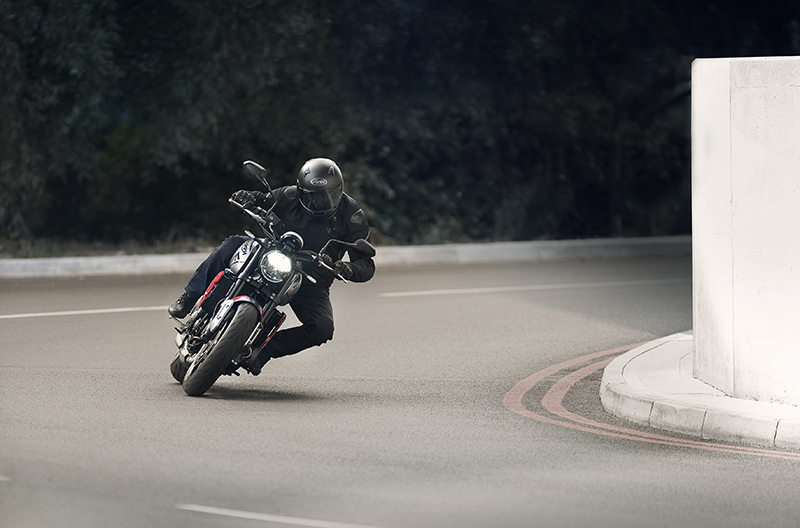
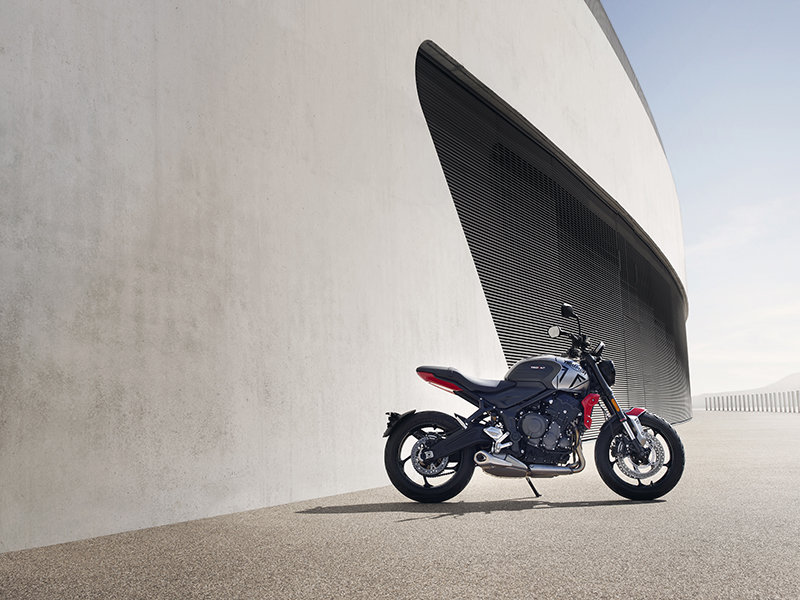
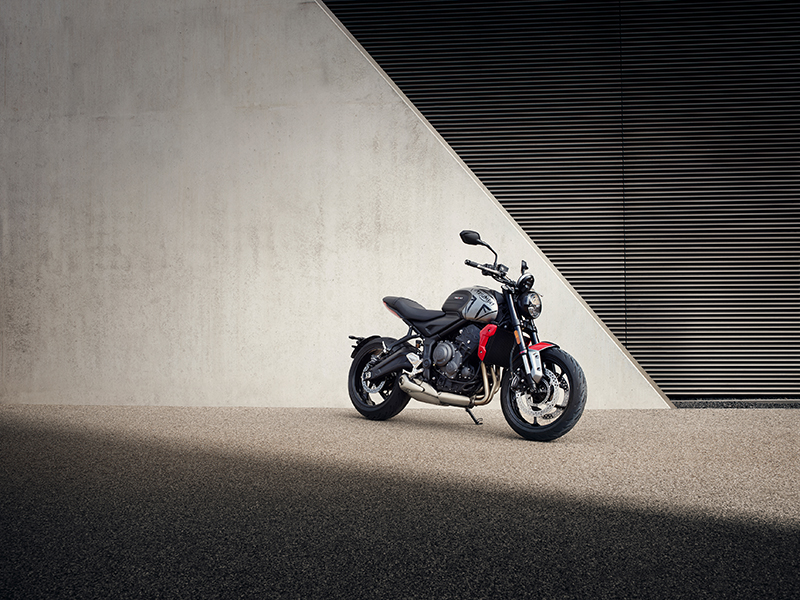
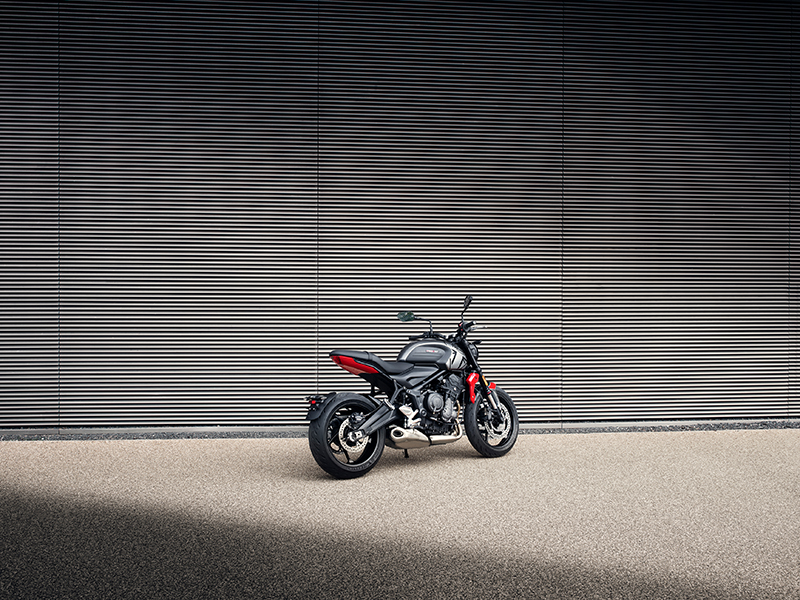
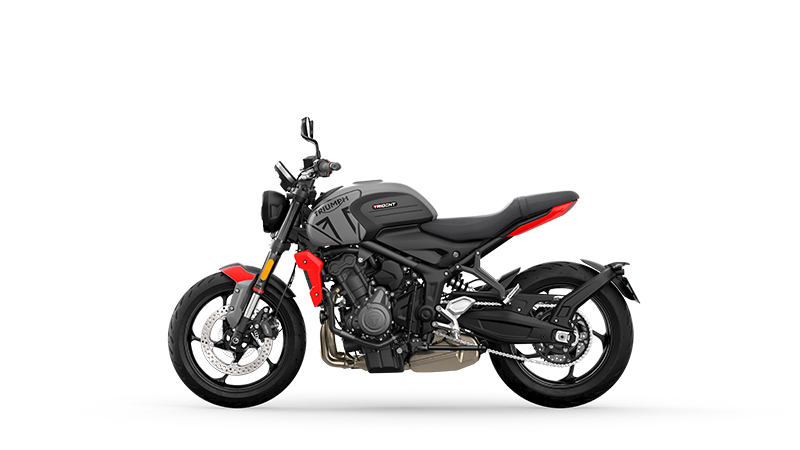
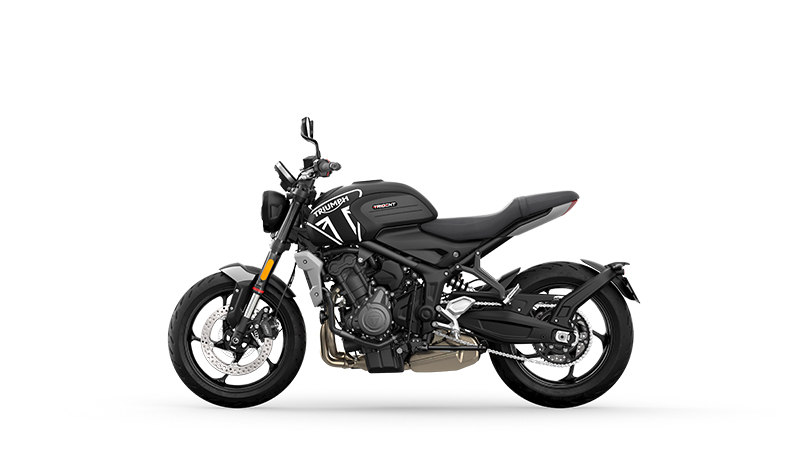
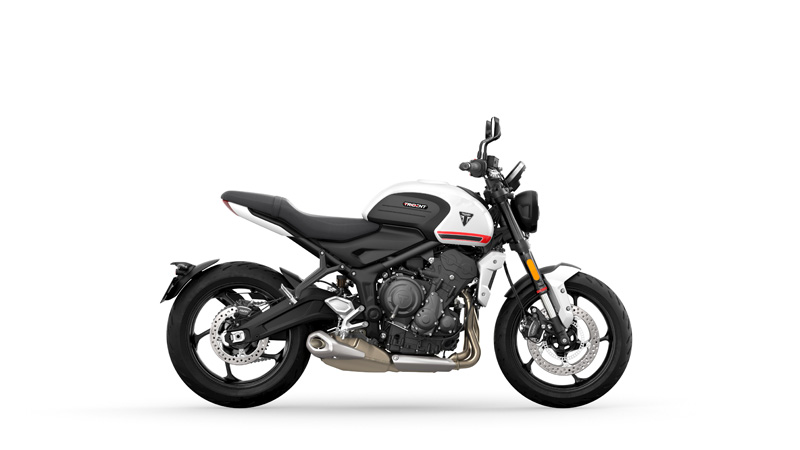
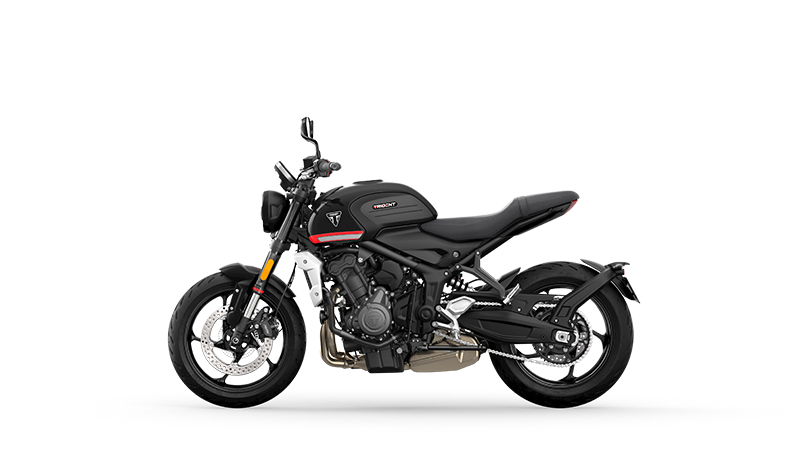
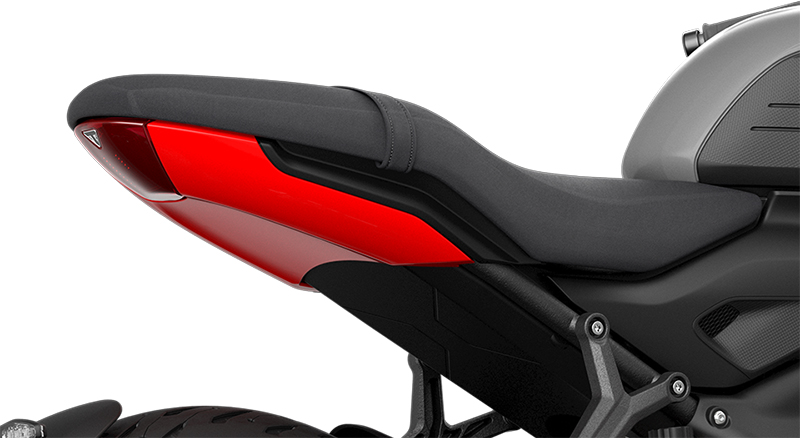
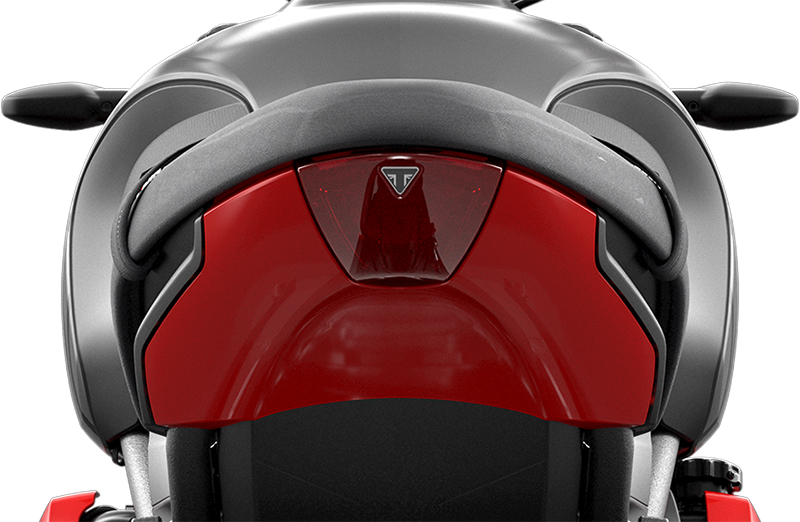
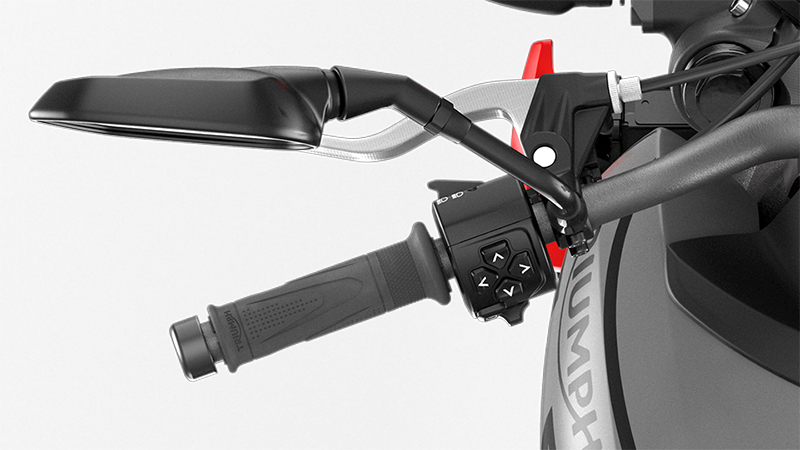
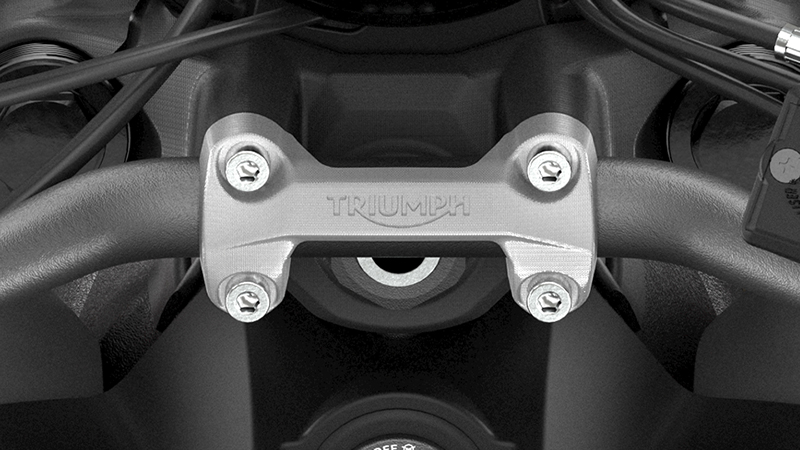
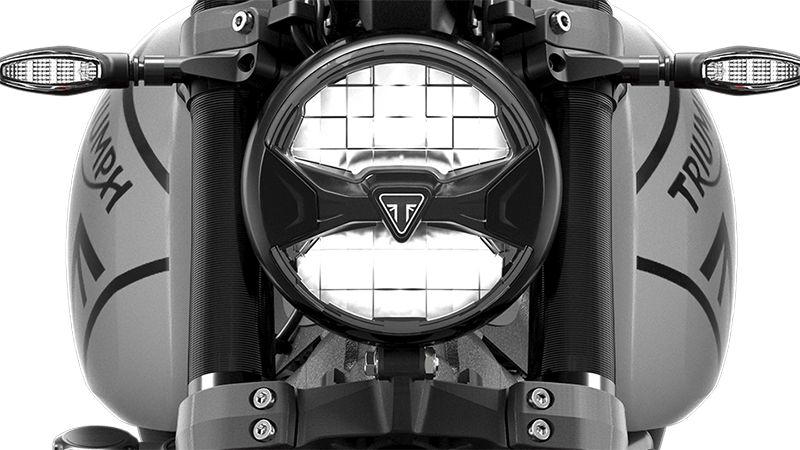
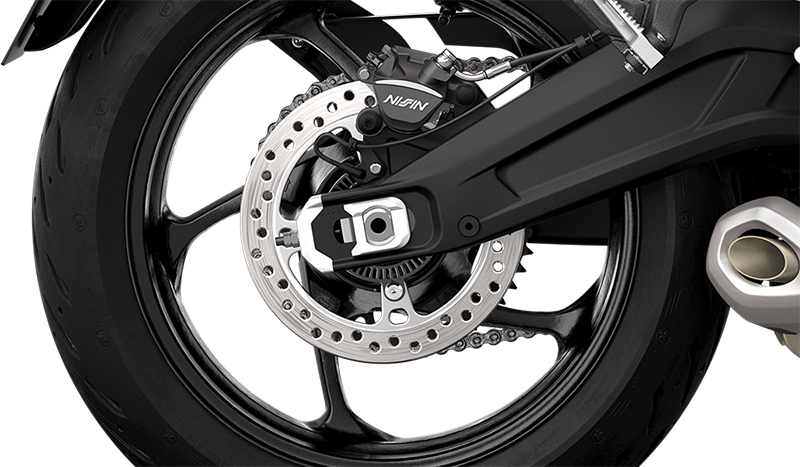
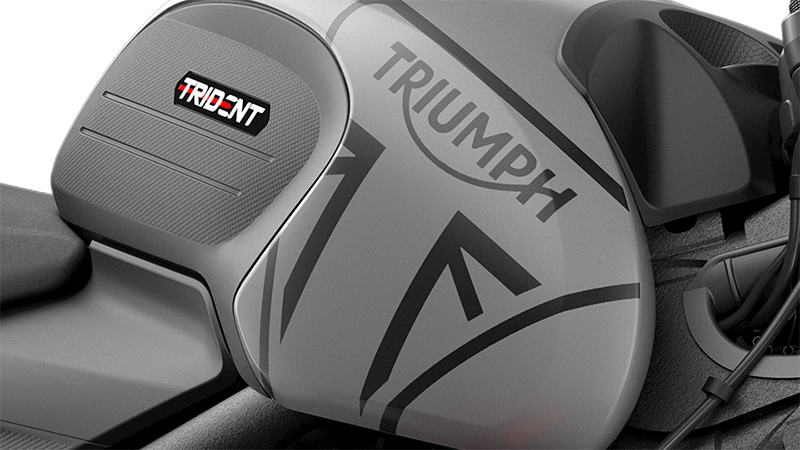








Slippery Sam, not Slipper Slam. Caused by an oil leak from somewhere that couldn’t be located.
I don’t understand why Triumph destroked the 675 engine to 660 ccs. Why not just leave it at 675 and detune appropriately?
Intel made the celeron.
Needs a proper front and rear fender. Back looks incomplete( get rid of that silly plastic thing on the rear wheel). Lose the grey version: boring color scheme. Stick a nice reverse cone and get rid of that dopey looking muffler. I’d like a Trident that looks more old school. KInd of like Bonnie meets 2001 Thunderbird. I know they’ll never make it…but I’m entitled to have an opinion.
Love it. Just bought mine after looking at all the other bikes in this class. It was a little more money but I felt it was worth the extra, considering the extra tech and modern features that the Japanese bikes mostly lack, especially my next favourite, the XSR700.